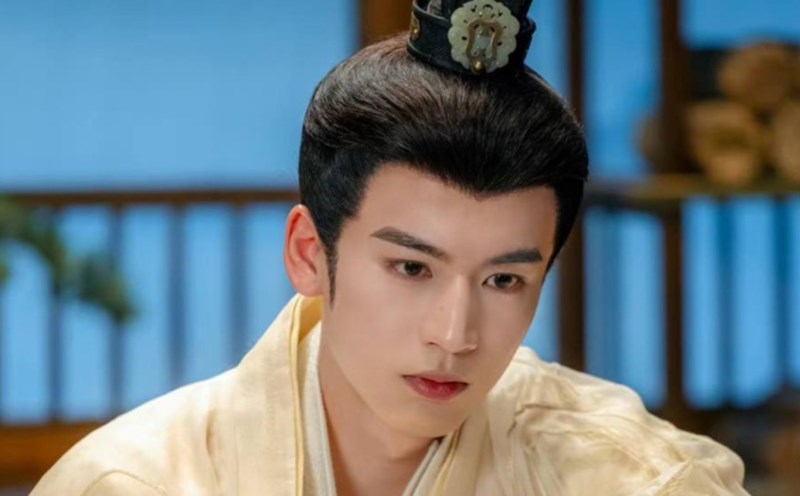The Chinese TV drama market in 2025 witnessed many controversies surrounding the use of high-profile male actors in leading roles, but the filming time was limited to the point of controversy.
The three most mentioned names are Dinh Vu He, Truong Lang Hac and Ly Quan Nhue - actors who already have a large fan base, expected to ensure the project's appeal, but in reality, they have a modest appearance period.
Accordingly, in "Son Ha Cham", Dinh Vu He played the male lead in the second part (ie playing the main role in 2nd place behind the top 1 person) but only had about 150 minutes to effectively film throughout 40 episodes.
The same situation happened to Truong Lang Hac - the male lead of the second season of "Amber Cherry", who only appeared effectively in about 150 minutes of 24 episodes. Even the case of Ly Quan Nhue in "Gui Lam Nguoi Than 1999" was more controversial when the male lead of the first part (the male lead ranked top 1 in the cast) only had 60 minutes on screen out of a total of 33 episodes.
After that, the broadcasting efficiency of all three films did not meet expectations. Son Ha Cham aired quietly on Tencent, with the average number of views currently struggling to hold the 10 million/episode mark. Amber Cherry stopped at over 13 million/episode, while Gui Lam Nguoi Than 1999 only reached over 6 million/episode when it aired.
Many opinions say that the common point between these three actors is that the flow is higher than the female lead, attracting great expectations from fans. Before the screening, fans actively bought VIPs, made statistics and promoted the film. However, when the film aired, the male lead's screen space was less than the supporting character, disappointing many people. This raises the question: did the script inherently have less space for the male lead, or were many scenes cut down sharply in the post-production period?
From this question, a bigger problem arises: are film crews taking advantage of high-quality actors to attract investors and fans, but do not ensure their worthy rights? When the film was successful, the actor's efforts were not recognized; when the film failed, the male lead became criticized for "not being able to carry the film".
In the context of fans spending real money to support their idols, the fact that the male lead appeared too little makes many people question the transparency in the production stage.











